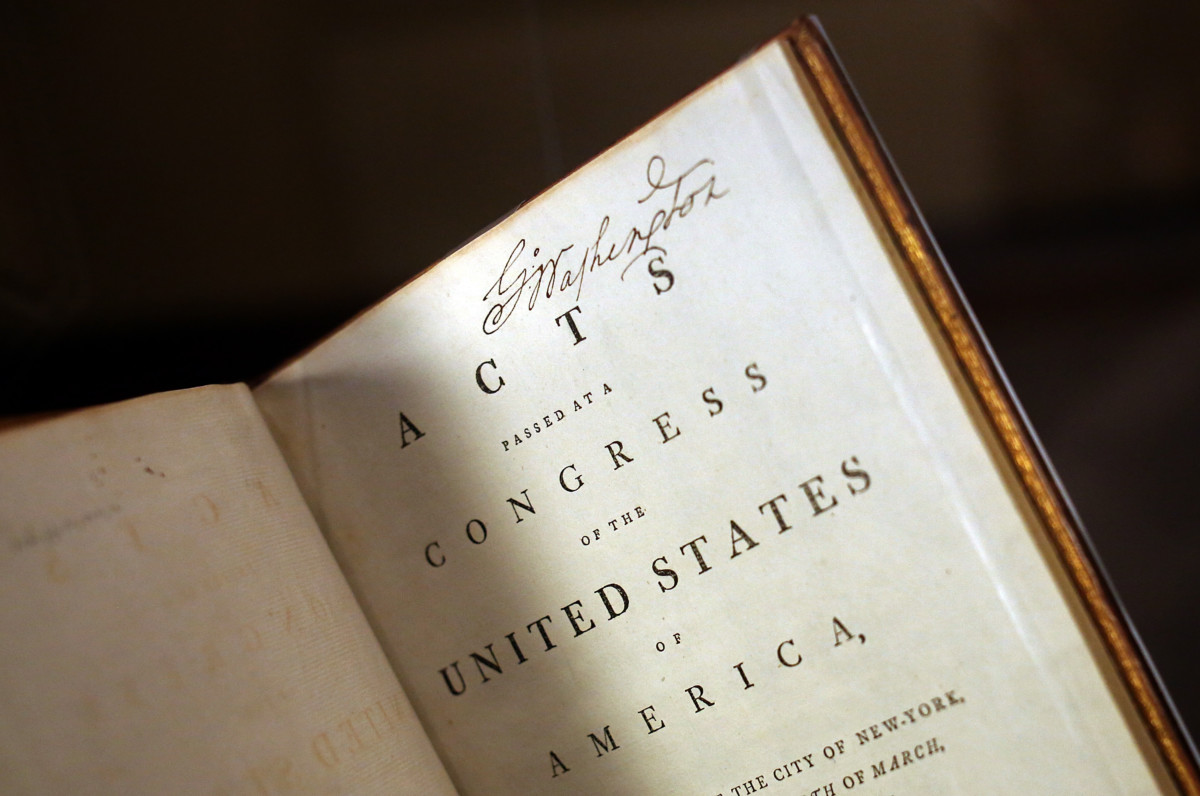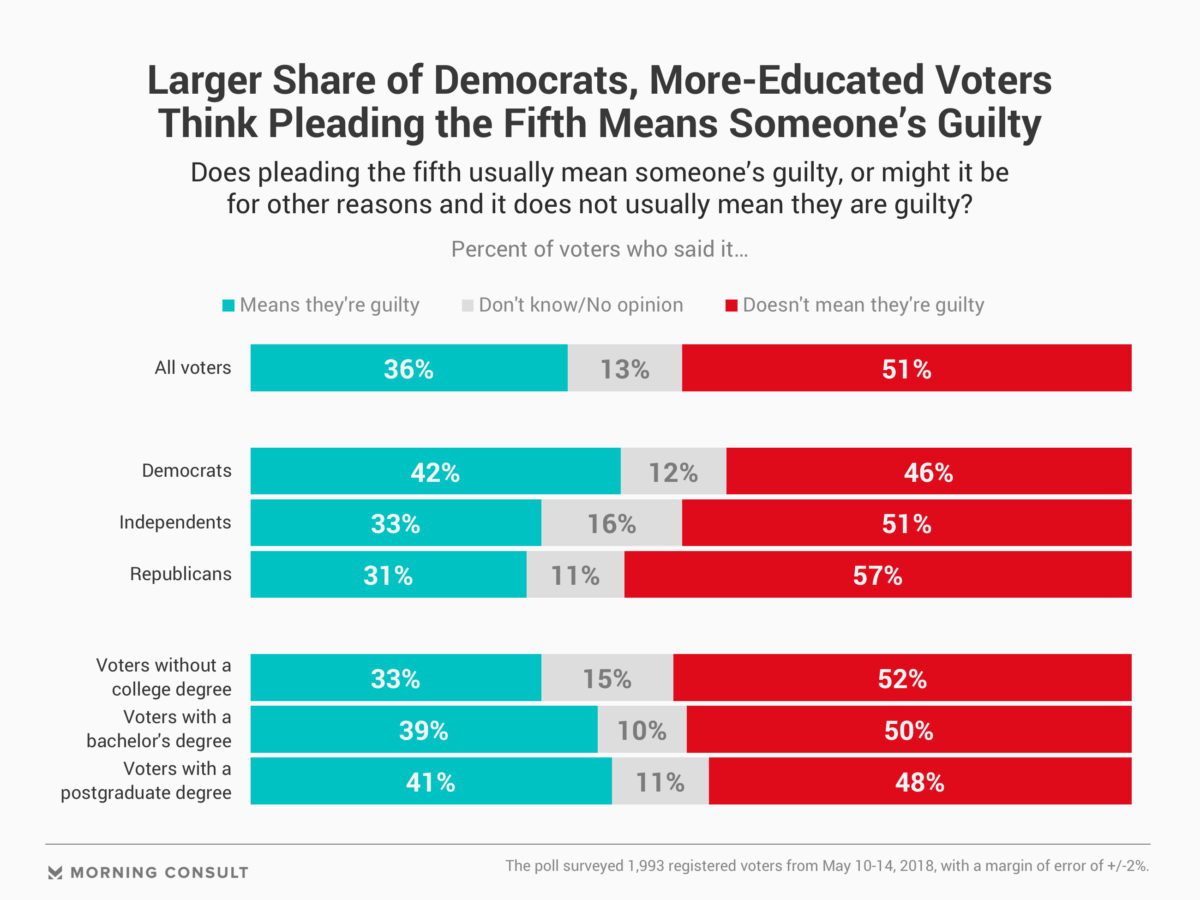Voters Don’t Necessarily Think Pleading the Fifth Implies Guilt, But It Varies by Party

Key Takeaways
51% of registered voters said that when someone invokes the Fifth Amendment, it does not usually mean they are guilty, while 36% said it usually does.
42% of Democrats said pleading the Fifth usually implies the person is guilty, compared to 31% of Republicans and 33% of independents who said the same.
Invoking the Fifth Amendment is not necessarily an indication that someone is guilty, according to 51 percent of voters in a poll conducted after President Donald Trump’s legal team didn’t reject the possibility of Trump pleading the Fifth in the Russia investigation.
A May 10-14 Morning Consult/Politico survey of 1,993 registered voters nationwide found that 36 percent of respondents said someone who pleads the Fifth is usually guilty. Thirteen percent said they don’t know or have no opinion. The poll has a margin of error of plus or minus 2 percentage points.

The Fifth Amendment to the U.S. Constitution prevents people from being compelled to testify against themselves in criminal cases, offering them protection from self-incrimination.
Former New York City Mayor Rudy Giuliani, a member of Trump’s legal team, recently told ABC News that he can’t rule out the possibility of Trump invoking his Fifth Amendment rights if he testifies in the Russia probe being led by special counsel Robert Mueller. “How could I ever be confident of that?” Giuliani said during an interview that aired May 6.
Trump has weighed in on the Fifth Amendment issue before. During a September 2016 campaign rally in Council Bluffs, Iowa, he said, “If you're innocent, why are you taking the Fifth Amendment?” The comments were in reference to the investigation into former Secretary of State Hillary Clinton’s use of a private email server.
Though the Morning Consult/Politico survey question did not mention Trump or the Mueller probe, responses varied by party identification. Thirty-one percent of Republicans said pleading the Fifth usually means someone is guilty, with 57 percent disagreeing. Democratic voters were more closely split: Forty-two percent said it usually means someone is guilty, while 46 percent disagreed.
Responses also varied by levels of education. Forty-one percent of voters with a postgraduate degree said pleading the Fifth means someone is usually guilty, a view shared by 39 percent of respondents with a bachelor’s degree and 33 percent of voters without a college degree.
Eli Yokley is Morning Consult’s U.S. politics analyst. Eli joined Morning Consult in 2016 from Roll Call, where he reported on House and Senate campaigns after five years of covering state-level politics in the Show Me State while studying at the University of Missouri in Columbia, including contributions to The New York Times, Politico and The Daily Beast. Follow him on X/Twitter and on LinkedIn @eyokley. Interested in connecting with Eli to discuss his analysis or for a media engagement or speaking opportunity? Email [email protected].
Related content

As Yoon Visits White House, Public Opinion Headwinds Are Swirling at Home

The Salience of Abortion Rights, Which Helped Democrats Mightily in 2022, Has Started to Fade
